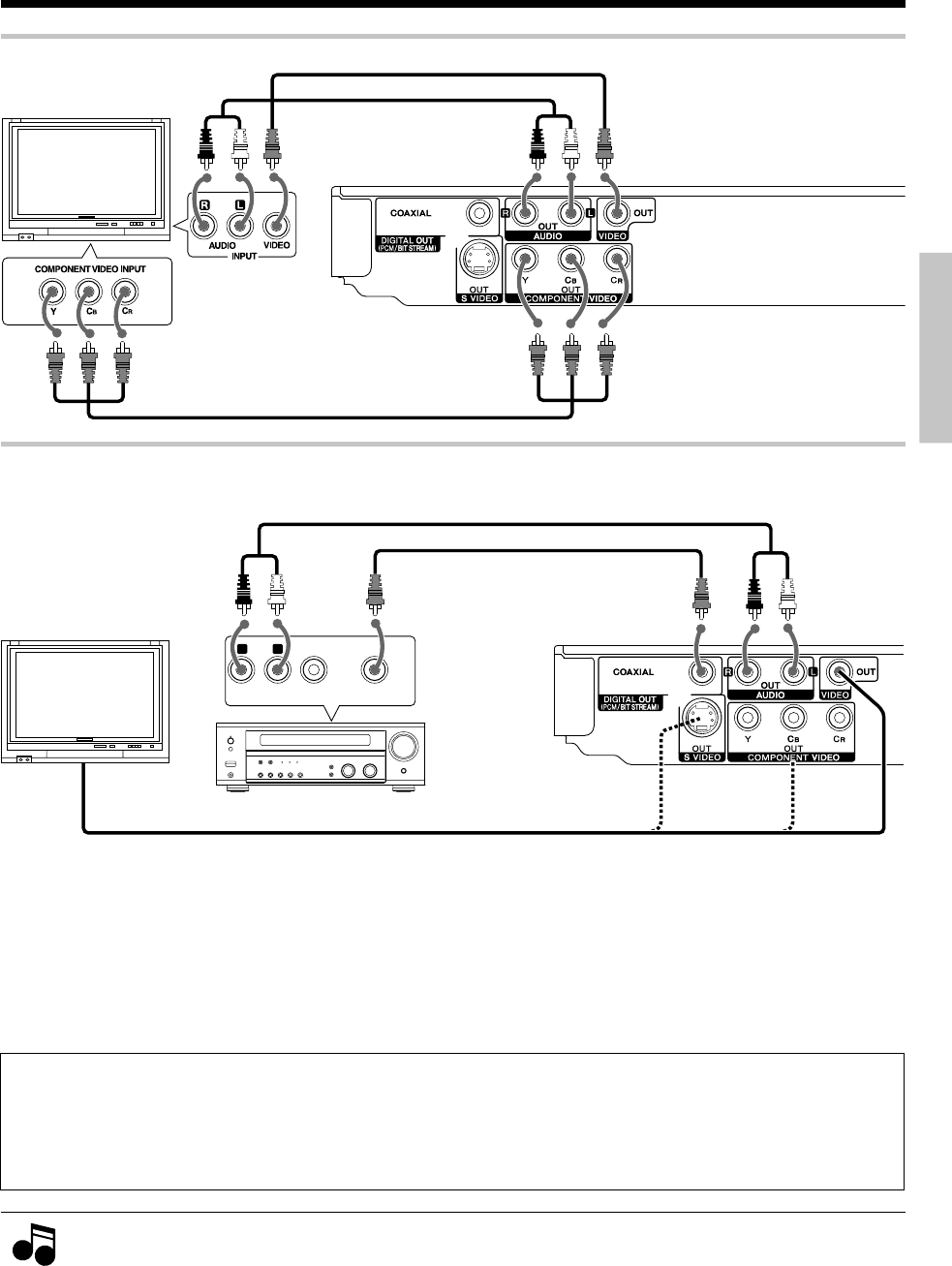
13
EN
Preparations
For playback of DTS audio, please connect an AV receiver or an AV amplifier which can decode DTS by digital con-
nection.
INPUT DIGITAL INPUT
AUDIO
VIDEO
R
L
COAXIAL
Connecting to an Audio component
Audio cord
Coaxial cable
TV
AV receiver or AV Amplifier
Video cable, S-video cable, or Component cords (Commercially available) (@)
1. In case an associated system component is connected, also read the instruction manual of the component.
2. If the audio format of the digital output does not match the capabilities of your receiver (amplifier), the receiver produces
a strong, distorted sound or no sound at all.
Notes
Notes
Connecting to a TV with Component input terminals
TV
Component cords (Commercially available)
System Connections
Rear panel example
(For U.S.A.)
Amplifier equipped with 2-channel analog stereo or Dolby Pro Logic II / Pro Logic:
Connect the left and right AUDIO OUT jacks on the DVD player to the audio left and right IN jacks on your amplifier, receiver, or stereo
system, using the audio cords.
Amplifier equipped with 2-channel digital stereo (PCM) or a multi-channel decoder (Dolby Digital™, MPEG 2, or DTS):
Connect one of the DVD Player's DIGITAL OUT jacks (COAXIAL) to the corresponding in jack on your amplifier. Use a digital (coaxial)
cable.
& "TV Output Select
(only for Europe)"
Rear panel example
(For U.S.A.)
Audio cord
Video cord
DTS disclaimer clause
When playing DTS-encoded (CDs, DVDs), excessive noise will be exhibited from the analog stereo outputs. To avoid possible
damage to the audio system, the consumer should take proper precautions when the analog stereo outputs of the DVD player is
connected to an amplification system.
To enjoy DTS Digital Surround™ playback, an external 5.1 channel DTS Digital Surround™ decoder system must be connected to
the digital output (S/P DIF, AES/EBU, or TosLink) of the DVD player.
*5634/01-15/EN 06.3.24, 3:27 PM13


















